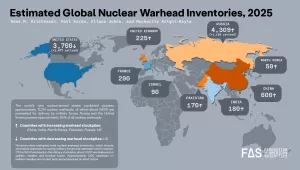This project seeks to explain when and why states engage in civilian nuclear cooperation. It advances a general theoretical argument that states exchange nuclear technology to meet security-related objectives. This general expectation leads to several hypotheses, including that military alliances and having a shared enemy increase the probability of nuclear commerce while militarized conflict reduces it. The speaker tests these hypotheses using a new dataset on civilian nuclear cooperation agreements and finds robust empirical support for them. Collectively, the results suggest that nuclear suppliers' strategic considerations are more salient in explaining civilian nuclear commerce than explanations rooted in economics or nonproliferation. Surprisingly, normative considerations limiting the spread of nuclear weapons have little effect on civilian nuclear cooperation. States that are pursuing nuclear weapons are actually more likely to receive nuclear technology and states that make legal commitments foreswearing nuclear weapons are less likely to do so. These results contribute to the literature on nuclear proliferation by enhancing scholarly understanding of how and why nuclear weapons spread.
Please join us! Coffee and tea provided. Everyone is welcome, but admittance will be on a first come–first served basis.



